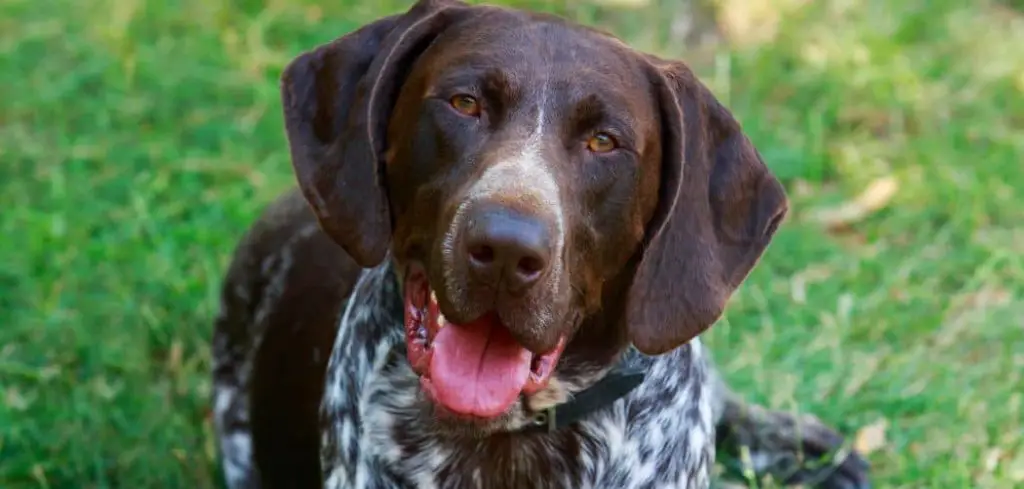It can be heartwarming to have a dog that absolutely adores you. But when their love turns into constant following, attention-seeking, or clingy behavior, it can raise some questions. Is it affection, anxiety, or something more?
We outline the common causes of why your dog excessively likes you, what you can do at home, and when to seek veterinary help.
Why Does My Dog Excessively Like Me? — Here's Why
When a dog seems overly attached to one person, the reasons often fall into a mix of emotional dependency, learned behavior, and anxiety. Dogs may become extremely fond of their owners due to past trauma, insufficient socialization, breed traits, or even medical conditions.
Some dogs crave constant closeness, while others develop separation anxiety or become overly attentive after illness or lifestyle changes. While loyalty is natural, excessive affection may indicate something deeper.

Common Causes of Why Your Dog Excessively Like You
Separation Anxiety
Separation anxiety is one of the most common reasons for clingy, overly attached behavior.
A dog with this issue often panics when left alone or separated from you. They may follow you constantly, whine if you close a door behind you, or act distressed when you’re preparing to leave.
This condition stems from fear of abandonment and is common in rescue dogs or dogs who have experienced a major change in household routine. It can significantly impact your dog’s emotional well-being.
Learned Behavior
Sometimes, dogs act excessively loving because they’ve learned that it earns them attention.
If you pet, feed, or soothe your dog every time they nudge you or follow you, they quickly associate closeness with rewards.
This pattern can develop unintentionally over time. While it seems harmless, it can reinforce clingy behavior and even lead to stress if your dog can’t be near you.
Lack of Mental Stimulation
Dogs that are bored or under-stimulated mentally or physically may develop clingy habits.
Without sufficient play, exercise, or enrichment, your dog might start shadowing you simply because you are their main source of engagement.
Certain breeds, especially working or herding dogs like Border Collies or German Shepherds, require high levels of activity and can become overly focused on their owners when unstimulated.
Health Issues
In some cases, excessive affection can be a subtle sign of an underlying health problem.
Dogs that aren’t feeling well may seek comfort or reassurance from their favorite human. Illnesses like cognitive dysfunction in older dogs, hormonal imbalances, or pain-related conditions may cause increased clinginess.
Always consider medical causes if the behavior is new or sudden.
Past Trauma or Insecurity
Dogs with a history of neglect, abuse, or abandonment often become overly attached to their new caregiver.
They may see you as their safe space and become fearful of being alone. Traumatized dogs often have deep emotional scars that result in obsessive affection as a coping mechanism.
This kind of attachment is deeply rooted in their survival instincts and takes time and patience to manage.
What to Do If Your Dog Is Excessively Attached to You
Start by evaluating your dog’s routine. Make sure they are getting enough exercise, play, and mental stimulation throughout the day. This can significantly reduce their reliance on you for entertainment.
Gradually train your dog to be more independent. Practice brief separations within the home, like leaving them in a different room with a toy. Use positive reinforcement to reward calm, relaxed behavior when you’re not interacting directly.
Avoid unintentionally encouraging clinginess. Try not to always respond to every whimper or paw tap with cuddles. Instead, wait for moments when your dog is relaxed and then offer attention.
If your dog shows signs of anxiety, try puzzle toys, treat-dispensing games, or even calming aids like pheromone diffusers. Creating a designated “safe zone” with a comfy bed, toys, and water can help your dog feel secure without being glued to you.
For dogs that have experienced trauma or are excessively fearful, slow desensitization and routine are key. In some cases, working with a certified behaviorist or trainer can help immensely.
When to Call or Visit Your Vet
If your dog’s overly affectionate behavior is sudden, intense, or accompanied by other signs like pacing, whining, loss of appetite, or aggression when separated, it could be linked to a medical or anxiety disorder.
Clingy behavior in older dogs can sometimes signal cognitive decline or confusion.
If your dog starts becoming more dependent after an injury, surgery, or illness, it’s worth checking in with your vet to rule out ongoing discomfort.
In any situation where your dog’s emotional health seems to be deteriorating, or if they seem distressed when apart from you, professional guidance is essential.
Read more: Dog Excessively Licking Feet (Here’s why)
Key Takeaway
While having a dog that loves you unconditionally is a joy, excessive affection or clingy behavior may signal underlying issues.
From anxiety and learned habits to trauma and health problems, it’s important to understand what your dog is trying to communicate.
Help your dog develop healthy independence through enrichment, training, and compassionate boundaries.
And always consult a vet or behaviorist if you’re concerned about a sudden change in their behavior.
